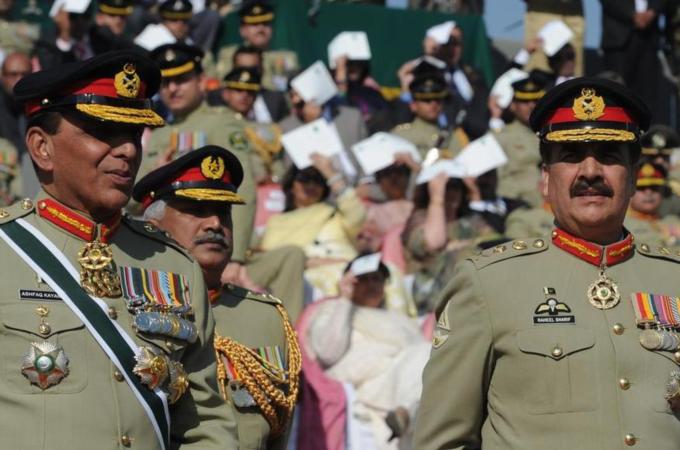Our Announcements
Sorry, but you are looking for something that isn't here.
Posted by admin in Nawaz "Badami Lassi Kim Barker Thurke" Sharif, Nawaz 's Dauphin, Nawaz Dangerous, Nawaz Sharif & Kashmiri Biradari, NAWAZ SHARIF THIEF, NAWAZ SHARIF US & SAUDI AGENT, Nawaz Sharif US Agent, NAWAZ SHARIF US CIA ASSET IN PAKISTAN, Nawaz Sharif-The Prime Minister from Hell on May 6th, 2014
Anti-Pakistan Army Nawaz, Nawaz League is Narendra Modi League, Pakistan Army Hater Nawaz Sharif
Posted by admin in " RIAZ THE SHAITAN OF PAKISTAN, Nawaz "Badami Lassi Kim Barker Thurke" Sharif, Nawaz 's Dauphin, Nawaz Dangerous, Nawaz Sharif & Kashmiri Biradari, NAWAZ SHARIF FAMILY TURPITUDE, NAWAZ SHARIF LOAN SCAM, Nawaz Sharif Massive Corruption, NAWAZ SHARIF MUZZLES PRESS, NAWAZ SHARIF SAGA OF ABSOLUTE & CHRONIC CORRUPTION, Nawaz Sharif-The Prime Minister from Hell, NAWAZ SHARIF: THE LOOTER, Nawaz US Agent, The New Face of Economic Hitmen on May 6th, 2014
COMMENTS BY PAKISTAN THINK TANK MEMBERS ARE SHOWN IN BLUE
“WE ALL ARE COWARDS AND BUNCH OF IDIOTS THINKING THAT PML-N GOVERNMENT IS MAKING FANTASTIC ECONOMIC PROGRESS UNDER THE LEADERSHIP OF OUR MOST TALENTED FINANCE MINISTER, ISHAQ DAR”

The writer is a columnist based in Islamabad. Email: [email protected]
ALL THOSE TRYING TO TELL PEOPLE OF PAKISTAN THAT PML-N GOVERNMENT IS MAKING FANTASTIC ECONOMIC PROGRESS UNDER THE LEADERSHIP OF OUR MOST CORRUPT FINANCE MINISTER, ISHAQ DAR, AND BONGA PRIME MINISTER ARE COWARDS AND BUNCH OF IDIOTS THINKING THAT COUNTRY WILL MAKE PROGRESS BY BEGGING MONEY OR RECEIVING CHARITY FROM DIFFERENT CHANNELS, RATHER IT ESTABLISHES THAT PAKISTAN IS A BEGGING STATE
Cronies Based PMLN Economic Team, Economic Incompetence of Nawaz Sharif, IPPs, Power Crisis is Killing Pakistanis, Recipe for Economic Disaster, The Economic Hit Men of West
Posted by admin in Nawaz "Badami Lassi Kim Barker Thurke" Sharif, Nawaz 's Dauphin, Nawaz Dangerous, Nawaz Sharif & Kashmiri Biradari, Nawaz Sharif Dangerous Man, NAWAZ SHARIF DICTATOR, NAWAZ SHARIF FAMILY TURPITUDE, NAWAZ SHARIF THIEF, NAWAZ SHARIF US & SAUDI AGENT, NAWAZ SHARIF US CIA ASSET IN PAKISTAN on April 30th, 2014

 Islamabad diary
Islamabad diary
Power Drunk Control Freak Nawaz Sharif is a Kughoo.He never learns from his past mistakes and continues to repeat them.He is not too bright in the hard drive in his head. Or he does not know how to use it, because,he lacks critical thinking skills and Emotional Intelligence which goes with it
Bewildered and Confused Nawaz Sharif, Power Drunk Control Freak Nawaz Sharif
Posted by admin in Nawaz 's Dauphin, Nawaz Dangerous, Nawaz Sharif & Kashmiri Biradari, Nawaz Sharif Dangerous Man, NAWAZ SHARIF DICTATOR, NAWAZ SHARIF FAMILY TURPITUDE, NAWAZ SHARIF LOAN SCAM, Nawaz Sharif Massive Corruption, Nawaz Sharif US Agent, NAWAZ SHARIF US CIA ASSET IN PAKISTAN, Nawaz Sharif Womanizer on April 28th, 2014

NAWAZ SHARIF PASSED STATE SECRETS TO INDIA
Posted by admin in " RIAZ THE SHAITAN OF PAKISTAN, GHADAAR-I-PAKISTAN NAWAZ SHARIF, Nawaz "Badami Lassi Kim Barker Thurke" Sharif, Nawaz 's Dauphin, Nawaz Dangerous, Nawaz Sharif & Kashmiri Biradari, NAWAZ SHARIF FAMILY TURPITUDE, NAWAZ SHARIF LOAN SCAM, Nawaz Sharif Massive Corruption, NAWAZ SHARIF MUZZLES PRESS, NAWAZ SHARIF SAGA OF ABSOLUTE & CHRONIC CORRUPTION, NAWAZ SHARIF US & SAUDI AGENT, Nawaz Sharif US Agent, PAKISTAN'S ELECTION RIGGING, PAKISTAN'S ENEMIES, REMOVE INCOMPETENT NAWAZ SHARIF, SAFFRON BANDITS, UMBERSARI KASHMIRI HATHOOS OF NAWAZ SHARIF BIRADARI on April 28th, 2014
|
 Not quite satisfied Nawaz Sharif engaged in quarrels with Gen Asif Nawaz Janjua and later with Gen. Jehangir Karamat, who had merely proposed the formation of a NATIONAL SECURITY COUNCIL which had been the need of the hour and is the norm in most countries.
Not quite satisfied Nawaz Sharif engaged in quarrels with Gen Asif Nawaz Janjua and later with Gen. Jehangir Karamat, who had merely proposed the formation of a NATIONAL SECURITY COUNCIL which had been the need of the hour and is the norm in most countries.Shams Z Abbas, Lahore
Badzaat Nawaz Sharif, KASHMIRI BADZAAT KH ASIF, KASHMIRI BUNGLER NAWAZ SHARIF